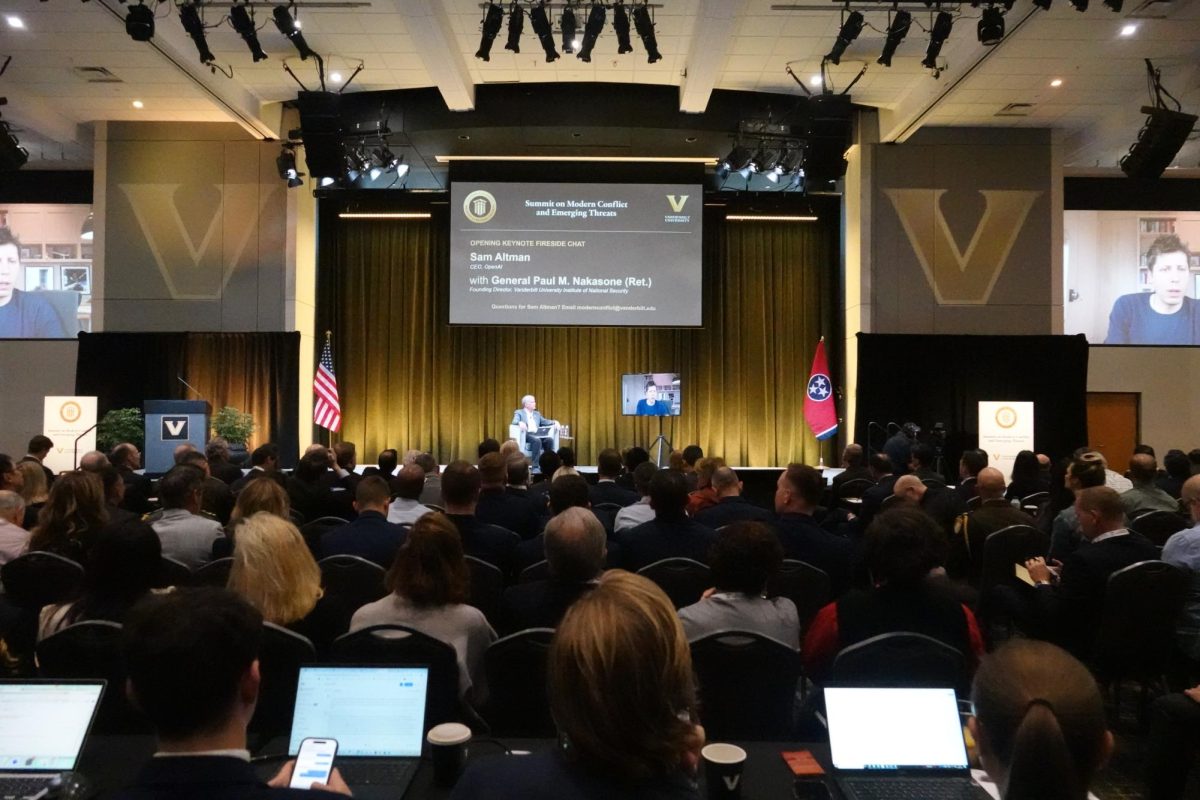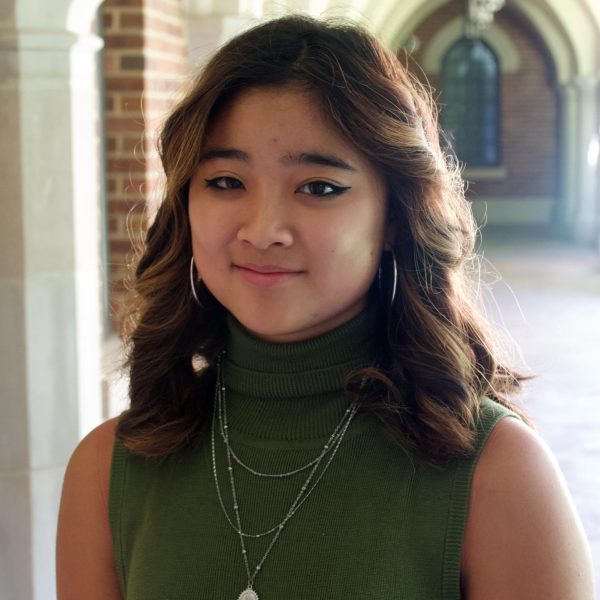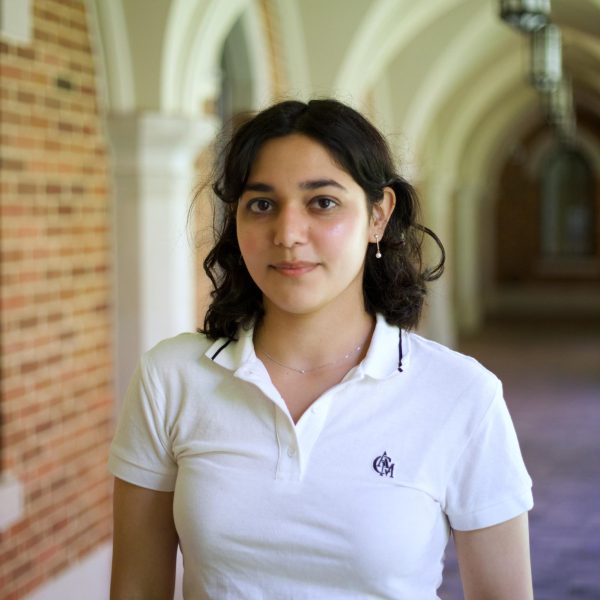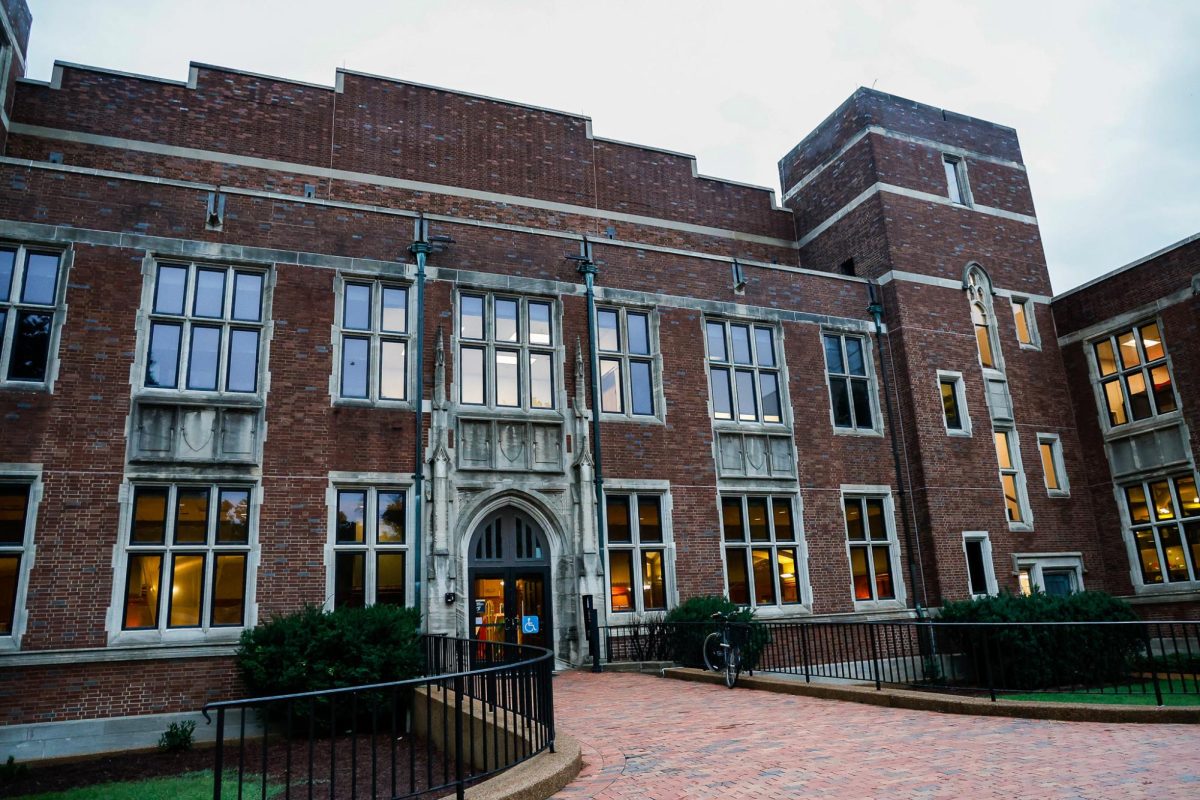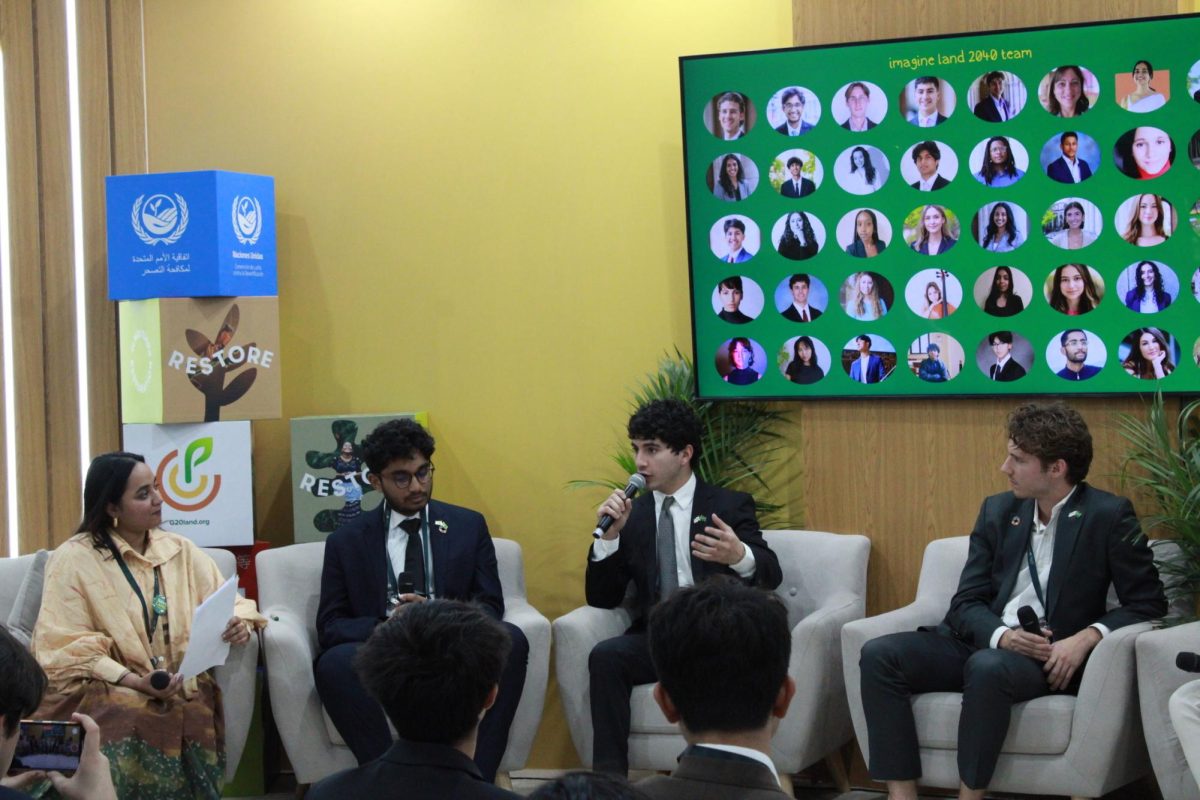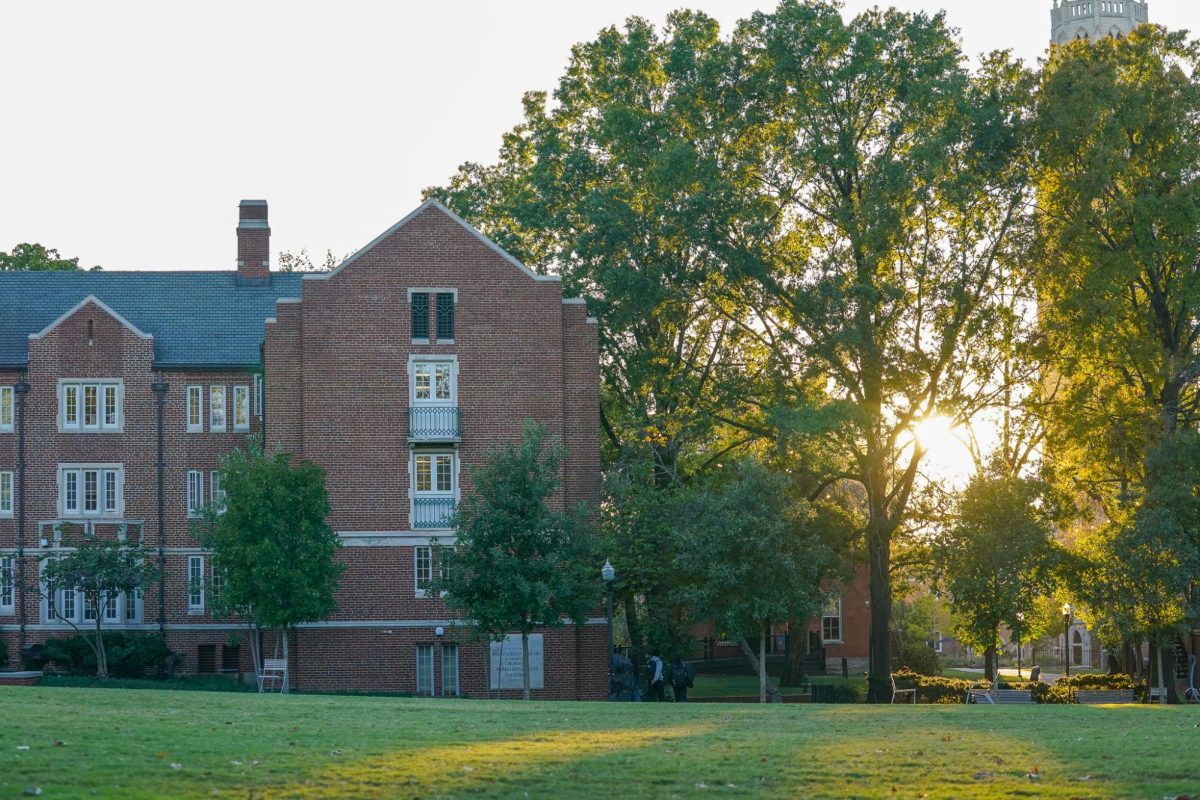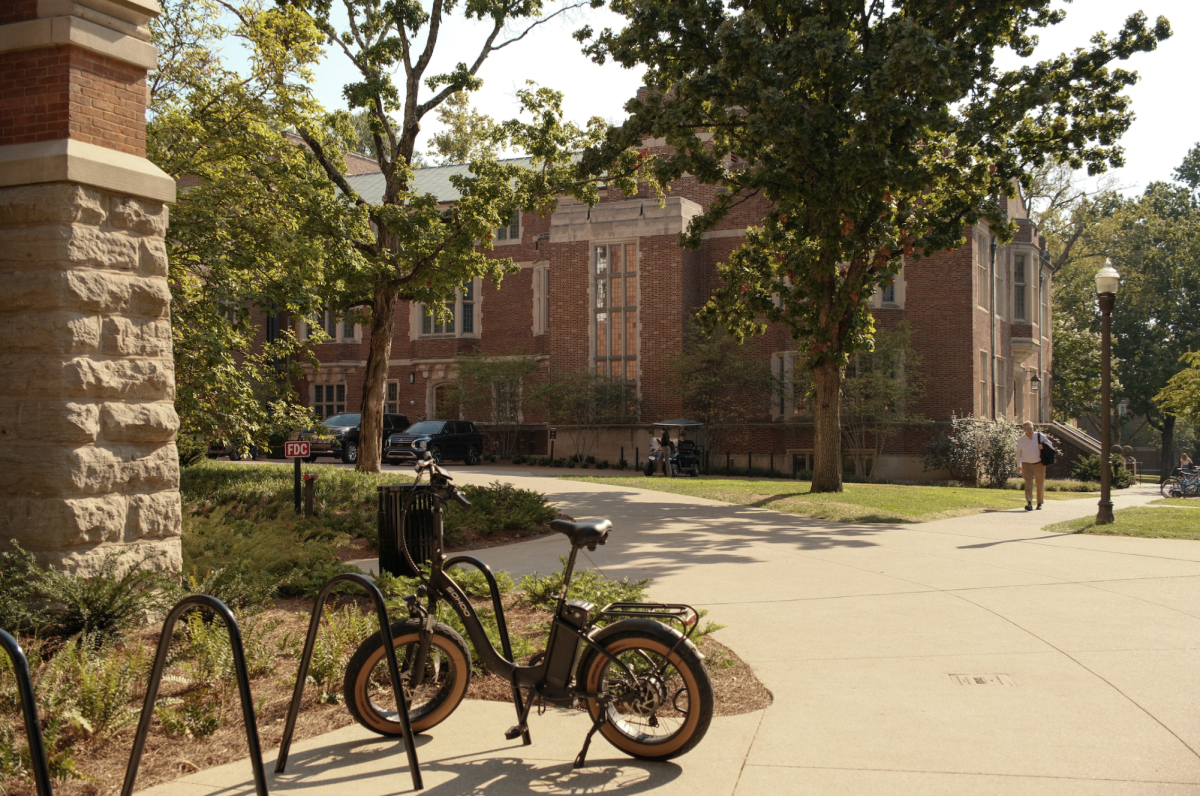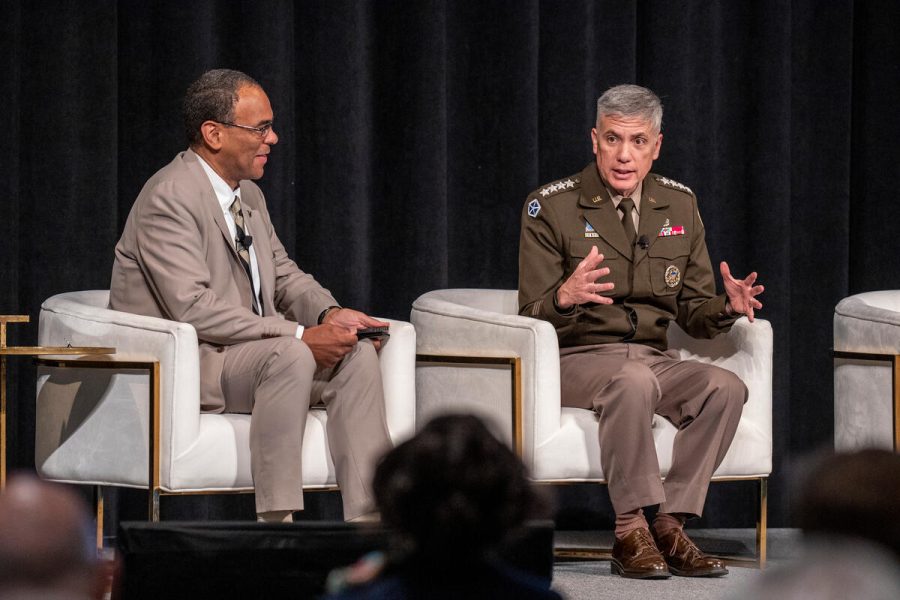The fourth annual Summit on Modern Conflict and Emerging Threats addressed themes around artificial intelligence, international conflict and cybersecurity from April 10-11 at the Student Life Center. Hosted by Vanderbilt’s Institute of National Security for the first time, the summit featured over 20 panelists across intelligence, military and business professions, including CEO of OpenAI Sam Altman, Congressman Mark Green and Senator Marsha Blackburn.
Session discussions covered AI and national security, implications in biomedicine, Indo-Pacific collaborations, cybersecurity and more. General Paul Nakasone, founding director of the Institute of National Security, discussed the potential for collaboration across higher education within the national security space.
“In terms of how we defend our nation in cyberspace, I think we’ve got to continue to work at it holistically. It’s not just one department or agency, there’s others,” Nakasone said. “In my role here at Vanderbilt, I hope to bring in academia as well. One of the things I think is important is that we be added to that three-legged stool including government [and the] private sector.”
Fireside chat with Altman
The summit opened on April 10 with a conversation between Altman and Nakasone. Altman discussed the initial idea behind OpenAI’s launch and the challenges of leading a startup, and his hope to ultimately reach a point where they can achieve artificial general intelligence, or AGI.
“I distinctly remember at the beginning of this journey how crazy everybody thought we were — there were times where I would be like, ‘Well, these are very smart people, maybe they’re right and we’re wrong, but we’re going to keep going,’” Altman said. “Against some very long odds, this idea led to useful systems and the [Generative Pre-Trained Transformers] breakthrough, [which] eventually led to a recent breakthrough [with GPT 2].”
Altman described how the creation of GPT 2, a large language model and the second iteration of GPT 1, was a pivotal moment for the company. He believes GPT 2’s introduction into the technology community marked the first time the world began to “believe in the possibility of powerful systems.” Altman also shared his vision for society when AGI is built.
“You can imagine a world where everybody has their [own] AI companion, and it gets to know you throughout your life,” Altman said. “It can be looking at your computer, observing your meetings and anything you need — it can just do. It can also just kind of passively observe and help you out as you’re going.”
In an interview with The Hustler, Altman also discussed his view on using AI as a tool to promote learning and education for students.
“I think the best thing to do is redesign the education experience or curriculum for a world with powerful AI. I think we can now expect students to [use this] new tool, and the way we teach them — what we expect them to learn, how we evaluate them — it should all change,” Altman said. “Until that happens, people should not be using ChatGPT to cheat, but we’re training students for a world that is going to not only have advanced AI in it, but require that productive adults use it.”
Altman shared his advice for young people in the face of an ever-evolving technological landscape.
“Trust your own intuition. The world adapts somewhat slowly. Young people are very much on the forefront of new technological revolutions, and they develop an instinct for what to do very quickly,” Altman said. “If there’s something that you really believe is important or is going to be important, take responsibility [for doing what is important] and trust your own intuitions.”
Fireside chat with Green
In a discussion on April 11 with Nathan Green, Vice Chancellor for Government and Community Relations, Congressman Mark Green opened the second day of the summit by addressing the intersection of national security and artificial intelligence.
“There are bad guys out there. We need people standing watch on the cyberborder,” Mark Green said. “That has to be a machine, because in order to defend against the AI attack, you need an AI defense.”
Mark Green also discussed the role Congress can play in addressing cyber- and AI-oriented security through legislative action.
“I think Congress can authorize these [security measures], pay for these things and make sure they’re happening. With AI, we can also make sure the dangers of AI are protected against,” Mark Green said. “[Cyber and AI] in our federal government, our institutions, our businesses and Congress is siloed. We have to think of this as a whole of government.”
Mark Green then suggested ways to implement policy-oriented strategy.
“It’s time for America’s political leaders to accept the fact that our private industry cannot protect themselves against a cyber attack from a nation state, and that means we need to start with a policy that says, ‘If you hit us, we’re gonna hit you back,’” Mark Green said.
The session concluded with Mark Green addressing students on how they can best prepare themselves for a career within any part of national security.
“You never know where you’re going to go, and what challenges you’re going to face,” Mark Green said. “So build the foundation now, in a place that has incredible opportunity. Learn every single thing you can.”
Fireside chat with Blackburn
Blackburn and political science Professor Brett Benson closed the summit on April 11 with a discussion centered on national security issues, technological innovation and bipartisanship in the national security space. Blackburn shared her view on what nations she sees as posing emerging national security threats to the U.S.
“When we look at the global security landscape, I think the first thing that we have to look at is what I term the new axis of evil: Russia, China, Iran, North Korea,” Blackburn said. “This is something that we should be paying attention to and realize that they are trying to achieve global dominance.”
Blackburn also emphasized the Chinese Communist Party’s ongoing funding of AI and quantum technology in competition with the U.S. and its allies.
“We have to look at these technologies and realize that China would like to dominate this market,” Blackburn said. “That means the legislators have got to focus. It means that our private sector needs to be pushing forward with innovation so that we do not fall behind.”
Blackburn concluded the discussion by calling to attention her view on Vanderbilt’s role as an institution in the sphere of national security.
“Vanderbilt is playing a role by caring about our nation’s security and emerging threats, educating people about these threats and where to be looking for the threats and awareness,” Blackburn said. “I think protecting the privacy and security of our nation’s people is vitally important, and it certainly comes from educational and research institutions, like Vanderbilt, that say our nation’s security is so paramount that we’re going to have an institute and do a deep dive on these issues every day.”
Student reactions
Annika Koch, a senior double majoring in political science and cognitive studies, attended the biomedicine panel on Day 1 of the summit, and she said she enjoyed engaging with topics around security in an interdisciplinary way.
“[The session] shed a lot of light on aspects of political science and government relations. It was interesting to see the intersection of AI, biology and all these different fields,” Koch said.
Will Hemond (B.A. ‘24), a research assistant with the Institute for National Security, emphasized how the summit represents one aspect of the overall impact of the institute.
“[The National Security Summit is] a time of this world-class university giving a huge amount of support to this big initiative, which is going to develop the next generation of national security professionals,” Hemond said. “It’s building the future of national security innovation, and it’s going to start right here at Vanderbilt.”

